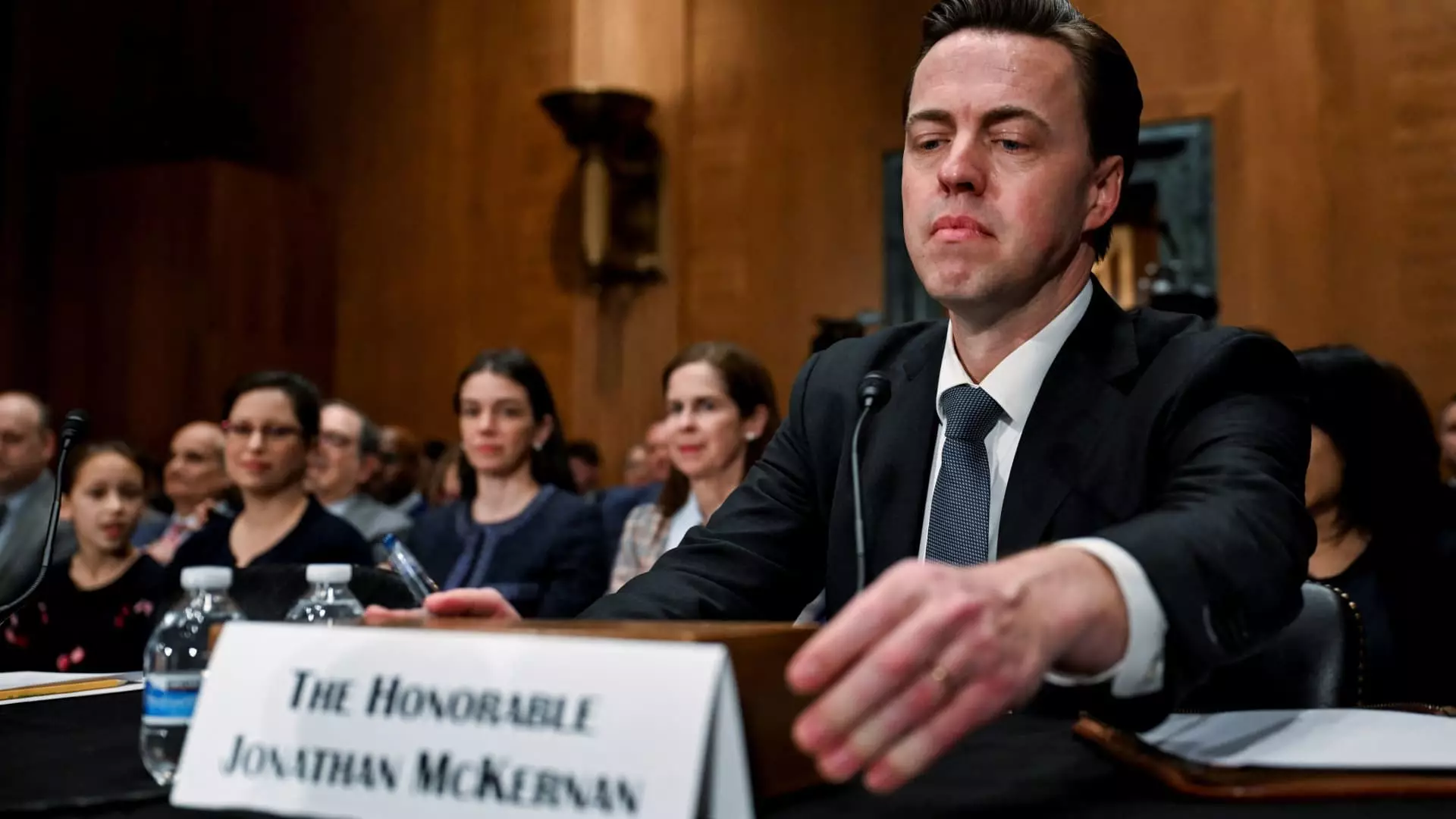The recent hearing for Jonathan McKernan, President Donald Trump’s nominee to lead the Consumer Financial Protection Bureau (CFPB), has unearthed significant concerns regarding the agency’s future. As a critical player in the financial regulatory landscape, the CFPB was established post-2008 financial crisis to protect consumers from predatory practices. However, during his confirmation proceedings, McKernan faced a barrage of probing questions from Senate Democrats, particularly focusing on his commitment to uphold the CFPB’s legal obligations. This situation underscores the precarious position of the agency amidst shifting political interests and an uncertain operational direction.
As the former Federal Deposit Insurance Corporation (FDIC) board member introduced himself, he conveyed the gravity of his role, highlighting his resolve to maintain a regulatory framework that protects everyday Americans. Despite his affirmations of commitment to consumer protection, skepticism pervaded the room, particularly from Senator Elizabeth Warren of Massachusetts. Her incisive questioning aimed to ascertain not only McKernan’s intentions but also to unearth potential ideological conflicts that could gravely impact the bureau’s operations.
McKernan’s assertions regarding his intent to enforce consumer protection laws were coupled with a sharp criticism of his predecessor, Rohit Chopra. He characterized the agency’s previous operations as politicized, suggesting a departure from what he deems appropriate regulatory behavior. This denunciation of Chopra’s leadership raises alarms about McKernan’s vision for the CFPB, indicating a potential shift away from aggressive consumer protection measures in favor of a more lenient, business-friendly approach. His remarks hint at an inclination to recalibrate the CFPB’s mission, suggesting it may no longer prioritize consumer advocacy as fervently as it historically has.
Compounding the unease is the backdrop of administrative upheaval under interim Acting Director Russell Vought. The closure of the CFPB’s Washington headquarters and the mass termination of staff have evoked fears of the agency’s dissolution. With rumors suggesting an attempt to significantly reduce the agency’s workforce, questions loom large about McKernan’s ability to enact meaningful reforms or maintain the CFPB’s operational integrity. The dismissal of ongoing enforcement lawsuits, including significant cases against major financial institutions like Capital One, further amplifies the stakes involved in this leadership transition.
As the Senate hearing unfolded, Senator Jack Reed expressed his apprehensions regarding the viability of McKernan’s tenure. The metaphor he used, likening McKernan’s situation to “departing Liverpool on the Titanic,” paints a vivid picture of the perilous path ahead. With significant administrative changes and a potentially hostile executive environment, McKernan’s ability to navigate these waters becomes a pressing concern.
Moreover, the commitment to uphold statutory requirements, like maintaining advocacy offices for veterans and senior citizens, is questioned amidst this backdrop of drastic changes. During the hearing, McKernan’s affirmation of adherence to statutory obligations did little to alleviate concerns voiced by senators, particularly when juxtaposed against earlier commentary suggesting a “right-sizing” of the agency. This phrase often implies a trimming of functions and priorities, raising fears that essential consumer protections may be deprioritized.
In a landscape where the CFPB is central to ensuring the financial marketplace operates fairly for consumers, McKernan’s potential leadership raises significant questions about the future of consumer protection. The indications of politicization and a pivot away from robust enforcement policies suggest an unsettling trajectory. As McKernan prepares to assume his role, much will depend on the Senate’s confirmation decision and the prevailing political winds that dictate the CFPB’s operational framework.
As he seeks to “refocus” the agency, the paramount question remains: will McKernan prioritize the protection of consumers, or will the agency evolve into a shadow of its original purpose, succumbing to political pressures and administrative retrenchment? The coming months will be critical in determining the trajectory of the CFPB, and the real test will be McKernan’s ability to balance compliance with a vision that safeguards American consumers.
The confirmation hearing of Jonathan McKernan serves as both a litmus test for the future of the CFPB and a reflection of the ongoing struggle between consumer advocacy and political interests. The implications of this leadership change are profound, warranting close scrutiny as they unfold in real-time.

